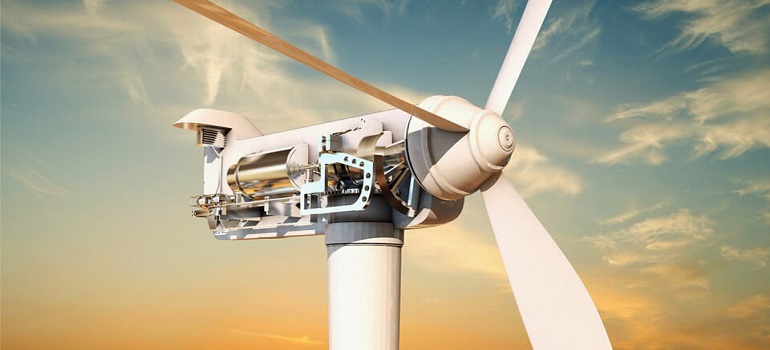
Following curbs on import concessions in the solar energy sector, the government may levy higher taxes on wind turbine components and generators to encourage use of local equipment and give a boost to domestic manufacturing.
Government sources said that the tax concessions available to the wind power sector for sourcing certain equipment required for making wind turbines and generators may be withdrawn and local manufacturers will be encouraged to produce these components.
The move is akin to the plan for the solar power sector where the power ministry has proposed higher basic customs duty of 20-25 per cent on solar modules and cells to restrict imports largely from countries such as China. Already there is a safeguard duty on solar equipment imports.
Even in the wind sector, higher duty will affect imports of components from China that is the biggest supplier of such material to Indian manufacturers of wind turbines.
But unlike in the solar sector, where generators import more than 80 per cent of modules from China due to the huge price advantage and limited domestic capacity, in the wind power sector more than 80 per cent of turbines are made in India. Only a few critical components and materials are imported from China.
At present, wind components such as special bearings, gear box, yaw components, wind turbine controllers, blades for rotor of wind-operated electricity generators, sub-parts of such blades, catalyst for use in the manufacture of cast, resin for use in the manufacture of cast components of wind-operated electricity generator are imported. These attract a concessional duty of 5 per cent.
This may be raised to levels closer to the duty proposed for solar power equipment to discourage imports and boost domestic manufacturing.
It is likely that changes in the wind power component duty structure may be implemented from the next fiscal to give time to domestic industry to find an alternative to imports.
The push for strengthening domestic manufacturing is coming from the government’s ‘Atmanirbhar Bharat’ initiative that is looking at import substitution and developing local capabilities. But the process has gathered added momentum after the recent border clashes between India and China and the simmering tension on the Line of Actual Control.
The concessional duty structure for the wind sector was set up in 2003 when the industry was not well developed. Now most of the manufacturing happens in the country and the industry is fairly developed to scale up through its own capacities.
Source: PTI
